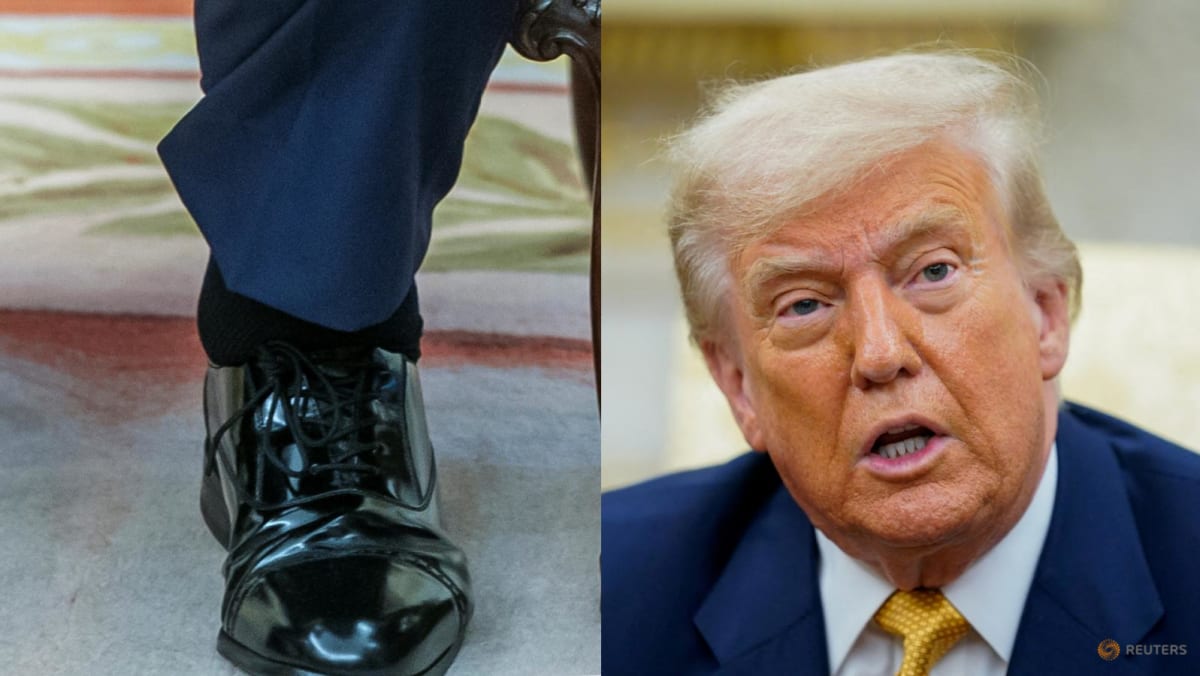After photographs emerged of United States President Donald Trump with swollen ankles, the White House on Thursday (Jul 17) said he has been diagnosed with chronic venous insufficiency.
White House spokeswoman Karoline Leavitt revealed Trump had been experiencing swelling in his lower legs and bruising on his right hand – though emphasising that both ailments were benign. She added that the latter was a result of “tissue irritation from frequent handshaking”.
Trump’s physician, Sean Barbabella, said an ultrasound on the president’s legs “revealed chronic venous insufficiency, a benign and common condition, particularly in individuals over the age of 70”.
What is chronic venous insufficiency?
Chronic venous insufficiency (CVI) occurs when veins in the leg cannot properly carry blood back up to the heart.
Overcoming gravity to pump blood from the feet all the way up to the heart is a challenge, especially when someone is standing or sitting for long periods. Leg veins are hence lined with one-way valves that keep blood from sliding backward on that journey.
When the valves do not work properly, blood flows backward and can pool in the lower legs, leading to symptoms such as swelling around the feet and ankles.
Damage to the valves can stem from changes in the veins, such as when they weaken and enlarge, making it hard for the valve to close fully. Anything that damages those valves can lead to CVI.
People are more likely to develop CVI if they are overweight, pregnant, have a family history or suffered leg damage from surgery, previous blood clots or other injuries.
What are the symptoms of CVI?
Besides swelling in the lower legs, symptoms can also include legs that are achy, heavy feeling or tingly and varicose veins. Severe cases could trigger leg sores known as ulcers.
Tiny blood vessels under the skin called capillaries can also rupture because of the increased blood and pressure in the legs.
Symptoms may also include cracked skin, open sores on the skin’s surface and brown-coloured skin near the ankles.
How serious a condition is CVI?
CVI is not a serious health threat, but it can be painful and disabling, according to Johns Hopkins Medicine.
Todd Berland, a physician who is director of outpatient vascular interventions at NYU Langone Health, said chronic venous insufficiency “has no overall effect on life expectancy. It’s a quality-of-life issue, not a quantity of life issue”.
But Kwame Amankwah, a physician who is chief of vascular surgery at the University of Connecticut in Hartford, warned that the condition still cannot be left untreated.
“If it’s not managed with compression stockings and elevation, severe swelling and ulcers can develop, warranting more significant medical interventions,” he said.













